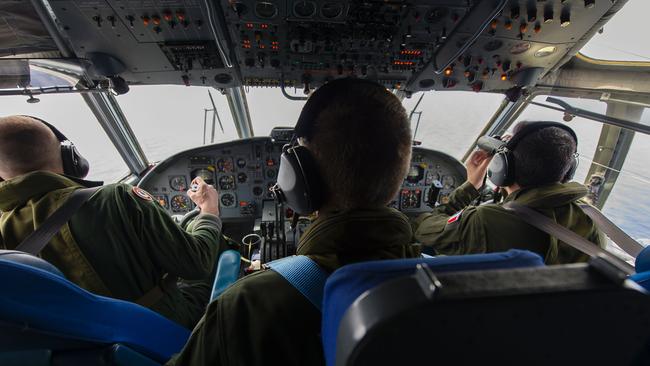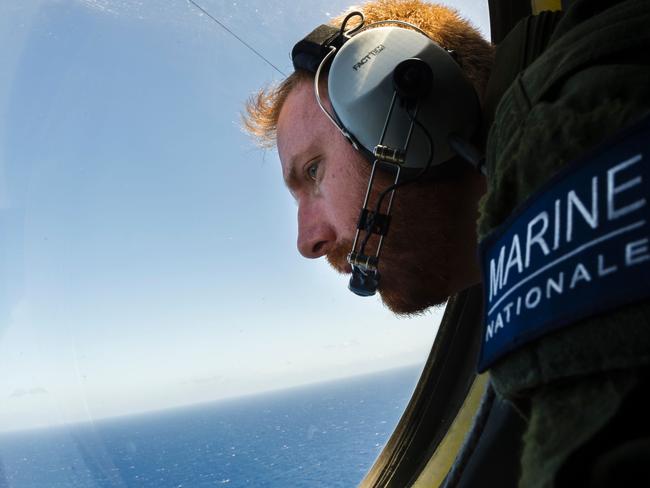French ship picks up EgyptAir signals in Mediterranean Sea
A SHIP has picked up signals from the Mediterranean Sea, presumed to be from black boxes of the crashed EgyptAir plane.

EGYPT says a French ship has picked up signals from deep under the Mediterranean Sea, presumed to be from black boxes of the EgyptAir plane that crashed last month, killing all 66 passengers and crew on board.
The Civil Aviation Ministry cited a statement from the committee investigating the crash as saying the vessel Laplace was the one that received the signals. It did not say when the signals were detected but the French Navy confirmed the Laplace arrived on Tuesday in the search area.
Laplace’s equipment picked up the “signals from the seabed of the wreckage search area, assumed to be from one of the data recorders,” the statement read.
The statement says that a second ship, John Lethbridge affiliated with the Deep Ocean Search firm, will join the search team later this week.
The search for the EgyptAir plane that crashed on May 19 has narrowed to a 5-kilometer (3-mile) area in the Mediterranean.

The vessel Laplace, is carrying three detectors made by the Alseamar company designed to detect and localize signals from the flight recorders, believed about 3,000 metres underwater. The torpedo-shaped detectors can be lowered about one kilometre into the water to listen for signals up to four kilometers away.
The Airbus A320 had been cruising normally in clear skies on a nighttime flight to from Paris to Cairo early on May 19 when it suddenly lurched left, then right, spinning all the way around and plummeting 38,000 feet (11,582.4 meters) into the sea. A distress signal was never issued, EgyptAir has said.
Since the crash, body parts and small pieces of debris have been recovered while the bulk of the plane and the bodies of the passengers are believed to be deep under the sea.
David Learmount, a consulting editor at the aviation news website Flightglobal, said the black boxes’ batteries can transmit signals up to 30 days after the crash. But even if the batteries expire, locating the boxes remains a possibility.
“It’s terribly important to find the black boxes, because if they don’t find them, they will know nothing about the aircraft,” he said, citing a 2009 incident when black boxes were found two years after a crash in the Atlantic Ocean.
Nearly two weeks after the crash off Egypt’s northern coast, the cause of the tragedy still has not been determined.
Egypt’s civil aviation minister Sherif Fathi has said he believes terrorism is a more likely explanation than equipment failure or some other catastrophic event. But no hard evidence has emerged on the cause, and no militant group has claimed to have downed the jet. Earlier, leaked flight data indicated a sensor detected smoke in a lavatory and a fault in two of the plane’s cockpit windows in the final moments of the flight.



